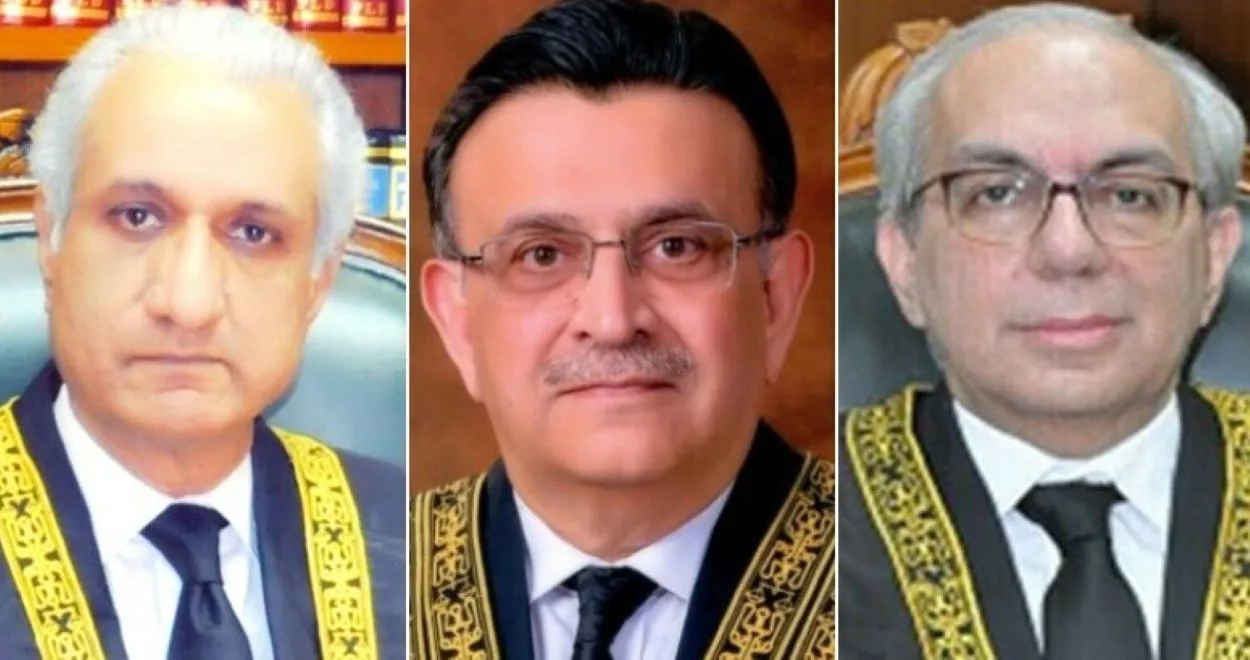Led by Pakistan’s Chief Justice Umar Ata Bandial, a three-judge bench has consolidated the Punjab election review case with the Supreme Court Review of Judgements and Orders Act 2023. The latter Act mandates the assembly of an expanded bench to reconsider a suo motu judgment.
Justices Ijaz ul Ahsan and Munib Akhtar also contribute to the bench overseeing these petitions.
The Review of Judgements and Orders Act 2023 is currently being contested in a petition filed by Advocate Riaz Hanif Rahi. Rahi calls on the court to overturn the Act, arguing that it is unconstitutional, ultra vires, null from the outset, and established without proper jurisdiction.
Rahi’s petition, which names the government as the defendant through the Secretary of the Ministry of Law and Justice and the Senate Secretariat Secretary Muhammad Qasim Samad Khan, argues that the Act is unconstitutional. He asserts that the Act was approved by the government for its benefit, not considering public welfare, thereby infringing upon Articles 188 and 191 of the Constitution.
Law Minister Azam Nazeer Tarar, referencing Article 188 of the Constitution, declared that the recent legislation he labeled as procedural authorizes the Supreme Court to scrutinize any judgment or order.
At the previous hearing of the Election Commission of Pakistan (ECP)’s petition, which contests the Supreme Court’s right to set an election date in Punjab, Chief Justice Bandial indefinitely adjourned the hearing upon Attorney General for Pakistan, Mansoor Usman Awan’s reference to the review order.
In its petition, the ECP maintained that the Constitution entrusts the announcement of general election dates to non-judicial entities. As such, the order under scrutiny breaks the vital principle of the division of powers and is thus untenable. Furthermore, the ECP argued that a fair National Assembly election is impossible with an elected government already in Punjab.






